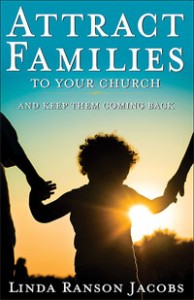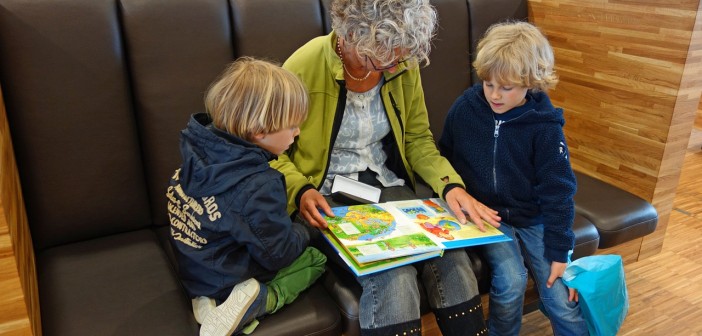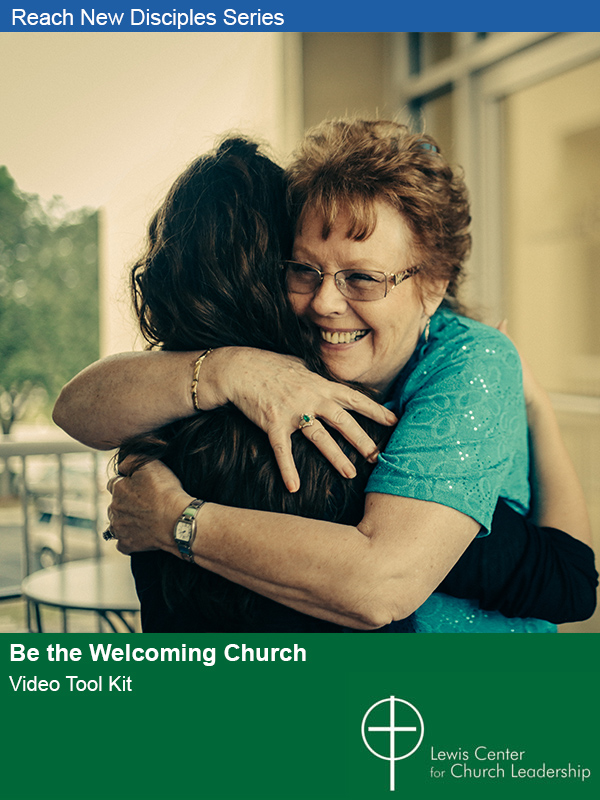Given the title of Linda Ranson Jacobs’s new book, Attract Families to Your Church and Keep Them Coming Back (Abingdon Press, 2014), one might assume it focuses on how a church can develop top-notch programs for children and youth to draw young families and bring new life to tired and aging congregations. While she affirms that high-quality children’s ministry is indeed important to families, programming is not the focus of her book. Rather, she speaks to a more essential need — to create an atmosphere of welcome, acceptance, and support for all kinds of families in an era when the structures and patterns of family life are rapidly evolving.
The theme that undergirds all this strategic advice: the importance of ministering to modern families in ways that acknowledge the realities of their lives, their unique emotional burdens, and their daily challenges.
The New Normal
The backdrop of Attract Families to Your Church is the shifting landscape of American family life. The author documents the changes with statistics such as these:
- Nationwide, 35 percent of children live in single-parent families. In 2009, 21.8 million children under the age of 21 were being raised by a single parent.
- In 2010, 2.7 million grandparents served as primary caregivers to one or more grandchild living in their household.
- Over one million children a year experience the divorce of their parents. Twenty-five percent of adults in their twenties and thirties spent at least part of their childhood in a divorced home.
- Forty percent of married couples with children in the United States are step families. There will soon be more step families than traditional families.
Underlying these trends is an “exodus from marriage” particularly among middle-class Americans, once the bastion of solid marriages and two-parent families. Increasingly, the relationship patterns of Middle America are characterized by cohabitation, serial partnerships, divorce, and single parenting, while stable, “traditional” family life tends to be a characteristic of those with higher incomes and education. Among the 60 percent of Americans who are high-school educated but not college educated, the rate of out-of-wedlock births has skyrocketed to 44 percent.
While this diversity of lifestyle patterns proliferates in American society, it is generally underrepresented in the church. Single and divorced parents often feel unwelcome in church, citing fear and shame as the reason. Many congregations continue to operate with the tacit assumption that “married with children” is the normative pattern of family life — in part because it still is within their churches. Missing is a wide array of families who desperately need spiritual guidance and supportive relationships — a “dechurched” population that becomes more remote from the church with each new generation. Attract Families to Your Church opens with a telling vignette. It describes a congregation that had dwindled to just 12 members while a vibrant weekday childcare program leasing its space serves over a hundred neighborhood children from a wide range of family backgrounds.
Empathy and Understanding
Attract Families to Your Church is filled with strategies and advice on how to minister to single parents, divorced families, step families, grandparents who are primary caregivers, singles, boomers, and the boomerang generations. But more significant is the theme that undergirds all this strategic advice: the importance of ministering to modern families in ways that acknowledge the realities of their lives, their unique emotional burdens, and their daily challenges.
 As someone who has journeyed through divorce, single parenthood, remarriage, and active grandparenting, Linda Ranson Jacobs has a heart for the spiritual needs of families in these circumstances. She strikes a careful balance by affirming the importance of stable family relationships and marriage without condemning or judging other family arrangements. Her book lays bare the stigmatization of nontraditional families and sensitizes church leaders to the need to minister to them in respectful and appropriate ways.
As someone who has journeyed through divorce, single parenthood, remarriage, and active grandparenting, Linda Ranson Jacobs has a heart for the spiritual needs of families in these circumstances. She strikes a careful balance by affirming the importance of stable family relationships and marriage without condemning or judging other family arrangements. Her book lays bare the stigmatization of nontraditional families and sensitizes church leaders to the need to minister to them in respectful and appropriate ways.
Keeping the Family in Family Ministry
Over and against the common tendency to push children, youth, and adults into age-segmented program silos, Attract Families to Your Church makes a strong case for ministering to the whole family. In a day when so many families are fractured and feel pulled in every direction, a family-friendly worship experience can draw them together, enhancing the faith development of children and adults. Attract Families to Your Church reminds us that the church still has a vital mission supporting and strengthening family bonds.
Attract Families to Your Church (Abingdon, 2014) by Linda Ranson Jacobs is available through Amazon and Cokesbury.
Related Resources:







